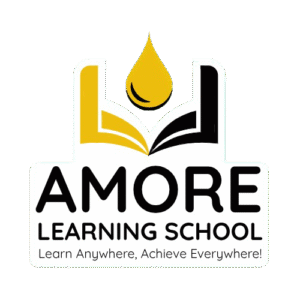
What is the IGCSE Syllabus?
he International General Certificate of Secondary Education is a set of examinations and qualifications designed for 14 to 16-year-olds, although they can be taken at any age. Borne out of the GCSE used in England, Wales and Northern Ireland, the IGCSE has evolved to meet the needs of students across the globe.
The IGCSE syllabus covers a wide variety of subjects, with no limits on the number of qualifications students can achieve. Apart from the compulsory subjects, students can select their own combination to personalise their curriculum.
Normally, a student will study each subject over a two-year period, sitting exams in the summer of their second year of study, typically in Year 11 at age 16. There is no time limit on how long a student needs to study before taking exams.
The IGCSE uses A* – G grading scale, with A* being the highest and G the lowest. In many of the exams, there are two tiers. The higher and lower-tier system is designed to ensure IGCSEs are attainable for all levels of ability, and teachers enter children into either tier in advance of exams.
CORE components OF THE IGCSE education system
While the IGCSE syllabus on offer may differ depending on the examination board and school, in this section, we’ll discuss some of the core subjects students can study.
A student’s IGCSE curriculum will vary considerably depending on the school in question, with each school able to structure their individual curricula. Cambridge Assessment International Education, an examination provider of the IGCSE qualification, break down the 70 subjects they offer into the following subject groups, giving an example of what could be on offer. Students are encouraged to design a broad pathway that includes a range of subjects from different groups:
- English Language and Literature
- Mathematics
- Sciences
- Humanities and Social Sciences
- Languages
- Creative and Professional
BROADER IGCSE AIMS
As the Cambridge International GCSE curriculum states, the IGCSEs also focus on developing broader learning skills and dispositions for students to develop. These include:
- Applying knowledge and understanding to new or unfamiliar situations – the IGCSE curriculum develops students’ abilities to apply their knowledge in new situations, so they’re able to take on challenges and are confident.
- Intellectual inquiry – rather than memorising lists of facts and dates, the IGCSE curriculum instils a curiosity and love of learning in students so they continue to expand their knowledge and understanding of the world around them.
- Flexibility and responsiveness to change – through a challenging but manageable curriculum, the IGCSE builds confidence in students, giving them the confidence to overcome adversity and respond to change.
- Working and communicating in English – effective communication is foundational to growth and success. The IGCSE curriculum helps students communicate in English, both verbally and in writing, whether it’s their native tongue or a second language.
- Influencing outcomes – students develop their agency and independence to positively influence the outcome of their lives.
- Cultural awareness – the IGCSE curriculum prepares students to be citizens of the world by inspiring their curiosity and respect for other cultures in our global society.
THE BENEFITS OF THE IGCSE CURRICULUM
The IGCSEs aim to prepare children for the best possible academic future, with the life skills necessary to be successful. Here are some of the benefits of the qualification:
- Respected academic qualification
Your child will benefit from one of the most respected academic qualifications in the world. Thanks to the Lisbon Recognition Convention, IGCSEs are accepted as worthy qualifications in many countries around the world. The convention was signed by 45 of the 47 member states of the Council of Europe, alongside countries such as the United States, Canada, New Zealand, and Australia.
- Accessible for all
IGCSEs have benefits for children of all ages and abilities and acts as a launching pad for a successful future. Some subjects even adopt a two-tiered structure, allowing your child to sit an exam that best aligns with their academic ability.
- Lay the foundations for the International Baccalaureate Diploma
As the IGCSEs are academically rigorous and include compulsory exams, they offer a degree of challenge that can better prepare students from the IB Diploma Programme. By preparing and sitting examinations at 16, students develop analytical skills and study habits needed to do well.
- Learn valuable life skills
The IGCSE curriculum works hard to ensure that students aren’t merely memorising a list of facts to pass their exams – critical thinking, evaluation, analysis, and communication skills are built into assessments. The intention is to develop an enthusiasm for intellectual inquiry.
